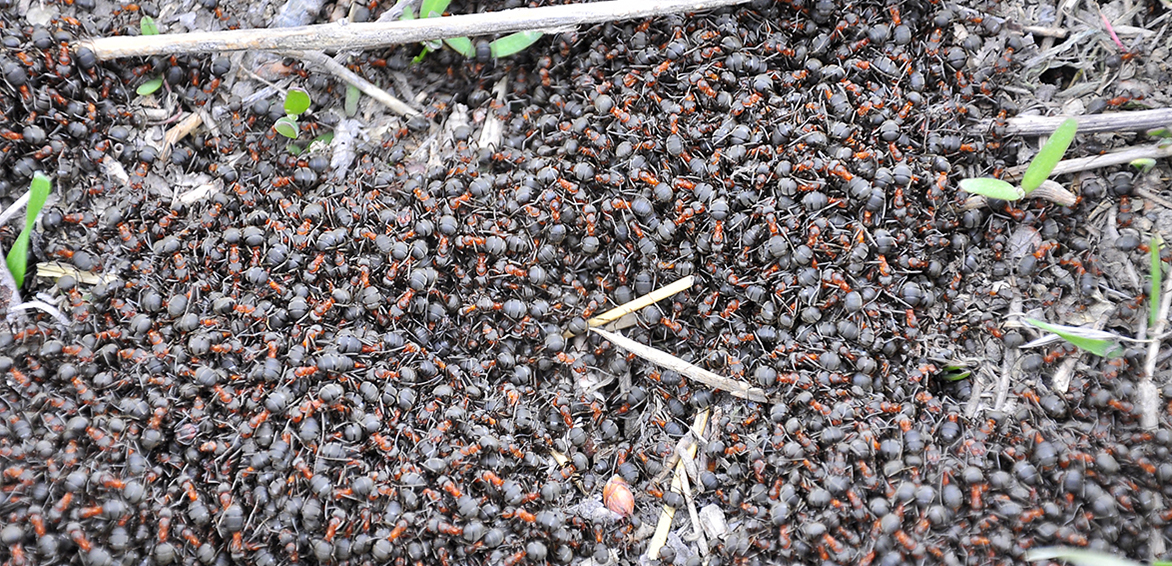Donna Haraway Staying with the Trouble: Making Kin in the Chthulucene

Ukrainian readers may know Donna Haraway’s work thanks to the Russian translation of A Cyborg Manifesto: Science, Technology, and Socialist Feminism in the Late Twentieth Century. Haraway’s new book, Staying with the Trouble, was published in 2016. In it, the author introduces the term Chthulucene, as well as the rather provocative slogan "Make kin, not babies!" The slogan can be interpreted to mean that we need to strive for a sympoetic coexistence — a term Haraway uses to mean the collective existence of living and non-living entities — which for her might be the only way to replenish the vitality of the planet. Similar to A Cyborg Manifesto, Haraway uses an exaggerated metaphorical and poetic language, invents new words, and seems to deliberately obscure a straightforward reading of the text. Such tactics can be explained by her fascination with science fiction and the often overlooked potential of this literary genre, as well as the fundamental element of the book’s thesis — it matters which stories we use to tell stories.
The issues about naming relevant to the Anthropocene, Plantationocene, or Capitalocene have to do with scale, rate/speed, synchronicity, and complexity. The constant questions when considering systemic phenomena have to be, When do changes in degree become changes in kind? and What are the effects of bioculturally, biotechnically, biopolitically, historically situated people (not Man) relative to, and combined with, the effects of other species assemblages and other biotic/abiotic forces?
No species, not even our own arrogant one pretending to be good individuals in so-called modern Western scripts, acts alone; assemblages of organic species and of abiotic actors make history, the evolutionary kind and the other kinds too.
Inflection point between the Holocene and the Anthropocene might be the wiping out of most of the refugia from which diverse species assemblages (with or without people) can be reconstituted after major events (like desertification, or clear cutting, or, or,...) I along with others think the Anthropocene is more a boundary event than an epoch... [that] The Anthropocene marks severe discontinuities; what comes after will not be like what came before. I think our job is to make the Anthropocene as short/thin as possible and to cultivate with each other in every way imaginable epochs to come that can replenish refuge.
Right now, the earth is full of refugees, human and not, without refuge. So I think a big new name, actually more than one name, is warranted — hence Anthropocene, Plantationocene, and Capitalocene (Andreas Malm’s and Jason Moore’s term before it was mine). I also insist that we need a name for the dynamic ongoing symchthonic forces and powers of which people are a part, within which ongoingness is at stake. Maybe, but only maybe, and only with intense commitment and collaborative work and play with other terrans, flourishing for rich multispecies assemblages that include people will be possible. I am calling all this the Chthulucene — past, present, and to come.
One way to live and die well as mortal critters in the Chthulucene is to join forces to reconstitute refuges, to make possible partial and robust biological-cultural-political-technological recuperation and re-composition, which must include mourning irreversible losses.
We need to make kin symchthonically, sympoetically. Who and whatever we are, we need to make-with—become-with, compose-with — the earth-bound.
We, human people everywhere, must address intense, systemic urgencies.
Photo: Subbotnik, IZOLYATSIA Foundation; photo by Dima Sergeev © 2011 Izolyatsia